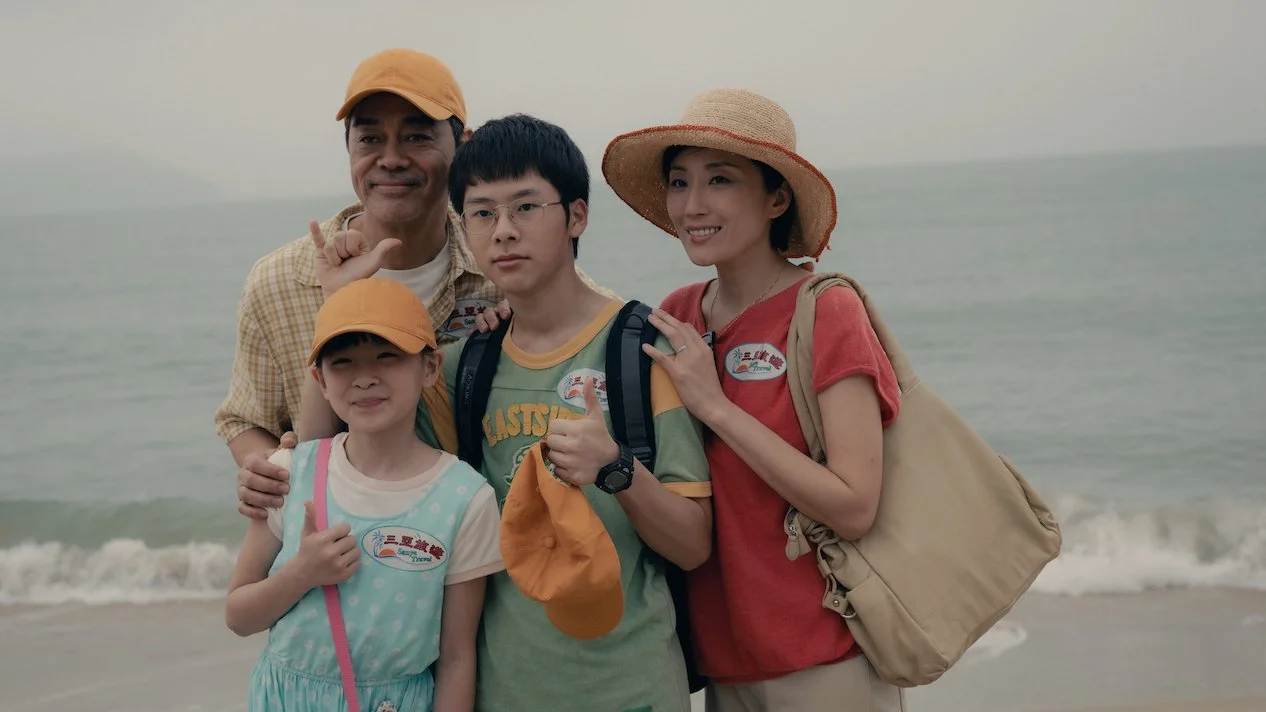Daddy’s Issues
Looks like writer-director Philip Yung may have hit his artistic stride.
Papa
Director: Philip Yung • Writer: Philip Yung
Starring: Lau Ching-wan, Dylan So, Jo Kuk, Lainey Hung, Law Wing-cheong, Alan Yeung
Hong Kong • 2hrs 10mins
Opens Hong Kong Dec 5 • IIB
Grade: A-
It’s tempting, and it would be easy, to toss writer-director Philip Yung Chi-kwong’s Papa | 爸爸 onto the pile labelled “true crime” because on the surface, that’s what it is. The sub-genre that’s had a bit of a boom in recent years (another reason to throw either blessings or a pox on Netflix’s house depending on your point of view) looked like it was running on fumes for a bit there; fatigue was setting in. But here comes Yung excavating another brutal Hong Kong murder to give the movie treatment, the way he did the murder-by-strangulation and dismemberment of a teenaged prostitute in his break-out Port of Call in 2015. That semi-procedural was thick with atmosphere, and for all the time Yung spent training his lens on the actual crime, he spent just as much exploring the inner lives of the detective investigating the crime, the killer and the victim, and the circumstances that led to her fate. If Port of Call flirted with examining the psychology of violence, roots and impact, Papa is all about that examination.
Some of us are going to see Papa as a return to Yung’s despairing, gritty, downbeat roots after he stuck his toe into the starry big budget filmmaking pool with the messy, choppy, clearly shredded Where the Wind Blows. That film was in his wheelhouse thematically, and it took a few big swings in its storytelling, but the China-Hong Kong co-production was handcuffed from fully telling its corrupt cop story by censors and it never really took flight. Papa is a return to the intimacy and psychology Yung does best, and so a movie about a kid in Tsuen Wan who murders his mother and sister (based on the real 2010 murder) becomes one about a man trying to hold it together in the wake of a hideous act of violence. Papa is Yung’s best film so far.
Flitting back and forth through time, and sometimes from Hong Kong to southern China, Yung and Taiwanese cinematographer Chin Ting-chang (Warriors of the Rainbow: Seediq Bale, Cape No. 7) paint an impressionistic portrait of Yuen Wing-nin’s (Lau Ching-wan) life as the owner of a busy, previously 24-hour chachaanteng, now a widower with a dead daughter too, and a son incarcerated for two murders. Yung starts blurring the lines between past and present immediately, only identifying time periods once, before moving on and demanding we find a way to keep up – or else letting Yuen’s memories float over us the way they do him. There’s still a puddle of blood in the flat he lives in across the street from the diner, a flat Yuen looks up at every so often, and from which he looked down at his wife, Yin (Jo Kuk Cho-lam, Missbehavior), when she was working the opposite shift. Yuen recalls meeting Yin for the first time and the awkward courtship that relied on her ability to use a public phone in a dormitory she lived in, and of taking their daughter Grace (Lainey Hung Nok-yi) to visit her grandmother when she was an infant. He also remembers the quirks and youthful fixations that made his 15-year-old son Ming (first-timer Dylan So Man-to) who he is, and the painfully ordinary father-son arguments in his ordinary family. He attends Ming’s trial. He meets his doctors.
The disjointed narrative structure goes a long way towards making Papa feel like memory, which comes to all of us as disjointed bits and bites, but Yung never loses the through-line, a not inconsiderable feat in non-linear storytelling. It would be easy to muddle the story and get bogged down in distracting minutiae but thankfully Yung’s script demands Chin swap out lenses, depth of field – Yuen looks physically separated from the world around him at times – and colour to drop subtle cues about where and when we are. And if you’re feeling like the death, grief and incomprehension are in your face they are. The old-school 4:3 television aspect ratio (just, ignore the pictures up in here) concentrates our attention and brings an immediacy to the story in a way polished widescreen could never.
Immediacy is important for Papa and for creating the dreamy, immersive experience that brings Yuen’s shattered life into sharp relief. At this stage in his career, Yung is less interested in the crime than in its blowback, which really only works if Lau is up to the task. In what may be a career high, Lau brings his Everyman to bear in manifesting the conflicting emotions that Yung theorises are warring with each other: Yuen hates his son for the act, but he’s still his son. He misses his wife but he also misses tangible affection. Yung also lobs queries about whether what turns out to be a mental illness in Ming should be handled by jailers or doctors. In his first role, non-pro So is unrefined in a way that works for Ming; that puts him just a bit out of step with his family. In a sign of maturing filmmaking, Yung mostly drops the gore and lets the unseen, unspoken and hazily remembered do the heavy lifting. Another of Hong Kong’s best of ’24.



